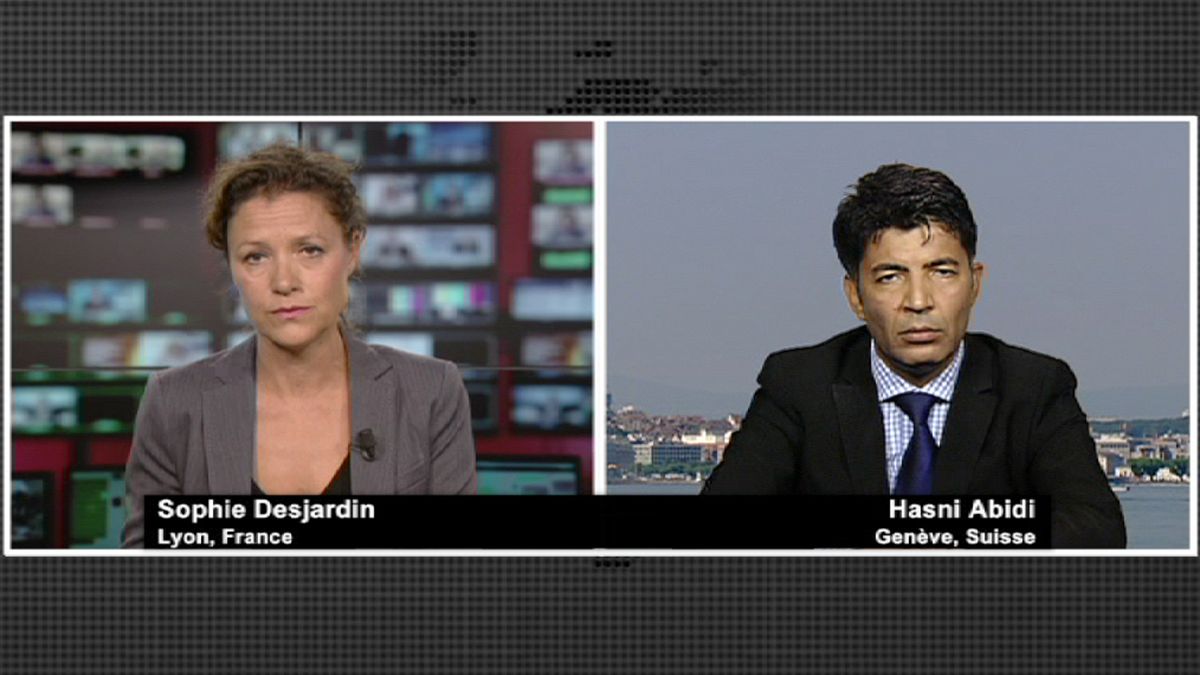Egypt faces an uncertain political future,with deep divisions between the pro- and anti-Mursi sides.
Weeks of demonstrations in protest at the president’s removal from office and arrest by the army, spawned the sit-ins which the interim government considered such a threat that they needed to be crushed.
For Mursi’s Muslim Brotherhood – the Islamists repressed for decades under President Mubarak – it seemed like the clock was being turned back.
Mursi had won Egypt’s first ever true election, with just under 52 percent of the vote.
But he displeased many Egyptians, including the army, under General Abdel Fattah al-Sisi.
The military stepped in following mass demonstrations during which Mursi was accused of abusing his power, changing the character of the nation and leading it deeper into economic ruin.
What worries many in Egypt and internationally is the restoration of the state of emergency and curfew which gives the army the powers of arrest and indefinite detention it held for decades under Mubarak.
Sophie Desjardin from euronews spoke with Hasni Abidi, a political scientist and Arabic specialist at the Study and Research Centre for the Arab and Mediterranean World, or CERMAM for short, in Geneva. She asked hjm about the current situation in Egypt.
Sophie Desjardin from euronews:
A curfew has been reinstated in Egypt, but our correspondent in Cairo has confirmed that the Muslim Brotherhood has no intention of giving up their struggle. What do you think is going to happen now?
Hasni Abibi, specialist on the Arab world at CERMAM:
All the indications coming from both the army and the Muslim Brotherhood, along with their sympathisers, are very worrying. The first indicator is the curfew reinstated by the military, however the most concerning is that the state of emergency that has been declared gives the army more powers. This means that there will be further restrictions and they will be able to make arrests at any time. The Islamists will expand their protests, as well as the number of sit-ins in Egypt’s major cities.
Euronews:
Many Egyptians, including a large number of intellectuals, support the army because they backed them in the first revolution. It is a strange alliance. But how far can the army go without losing that support?
Hasni Abibi:
We must not forget that the Egyptian army is an army of the people. It is not professional like the Turkish army. It takes part in all areas of society, including the economy. For Egyptians, it is the only guarantee that the country won’t implode and their only guarantee against the common belief that Egypt will be controlled solely by the Muslim Brotherhood.
Euronews:
Does that mean the army can do what it wants?
Hasni Abibi:
Unfortunately, we can’t rule out a change in attitude or that they won’t be able to resist the temptation to put an authoritarian system in place. The army did achieve their objective, but the consequences of their actions will be terrible for their image. Of course, international reaction has not been positive but if they manage to restore security and stability to the country, and build on that, they will not only regain the support they had before but will also reassure Egyptians who, right now, are more divided than ever.
Euronews:
What will the Islamists’ strategy be from now on? What can they do? The situation reminds one of Algeria in the 1990s. Is there a risk of radicalisation, or even terrorism?
Hasni Adibi:
There are obvious similarities between the situations in Egypt and Algeria. The cancelling of the elections in Algeria in January 1992 radicalised the Islamist movement and brought about the birth of radical movements like the Armed Islamic Group (GIA) or the Salafist Group for Preaching and Combat (GSPC).
Unfortunately, Egypt already has its own radical groups like Al-Gama’a al-Islamiyya or the Egyptian Islamic Jihad. They lost out after the Arab Spring because they saw that the Islamists gained power through the elections and not because of an armed struggle. However, the latest events and of course the overthrow of President Mursi is boosting these radical movements. It gives the impression, that in the end, taking part in the political process is not the best option, and armed struggle is now the only option.
Euronews:
Egypt is a heavyweight in the Arab world.Could this conflict spread to other countries?
Hasni Abibi:
If the Islamists keep on with their suicidal logic and scorched earth policies on the basis that they have already lost everything, they will wear down the army. The military will find itself confronted with major flash points in the Sinai and in other cities, and also have to deal with the alarming flow of weapons from Libya, which is out of control today.
Managing politics on a daily basis could also weaken them, so it is imperative that the army hand power back to civilians as soon as possible, or to Adly Mansour or Hazem Al Beblawi. I believe the international community currently has a moral and political duty to not abandon the Egyptians to their fate.
